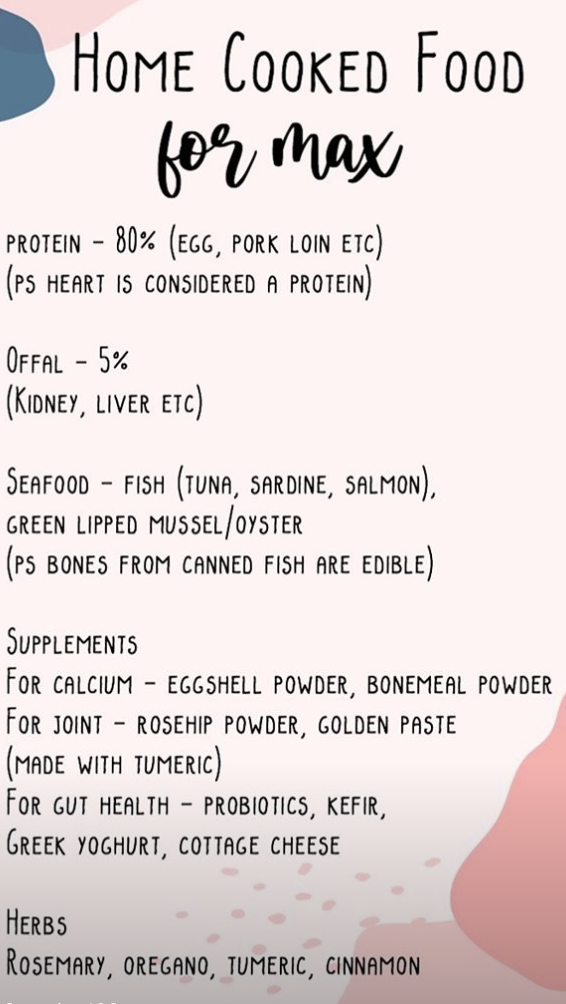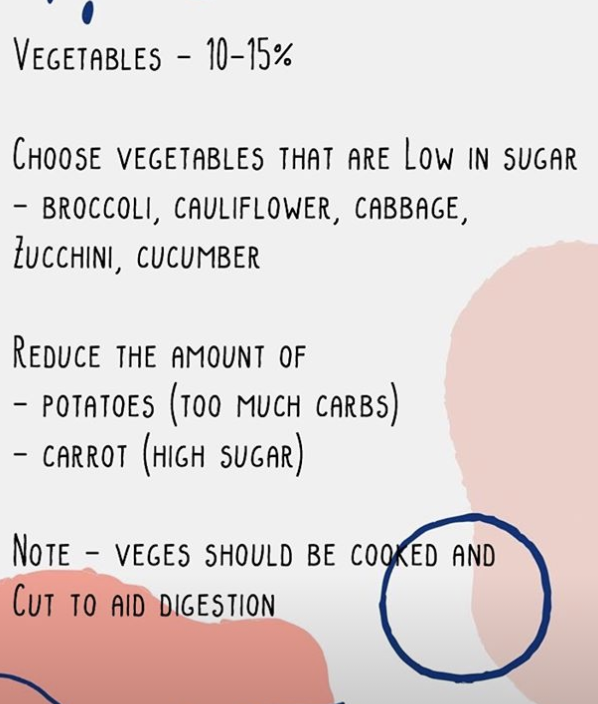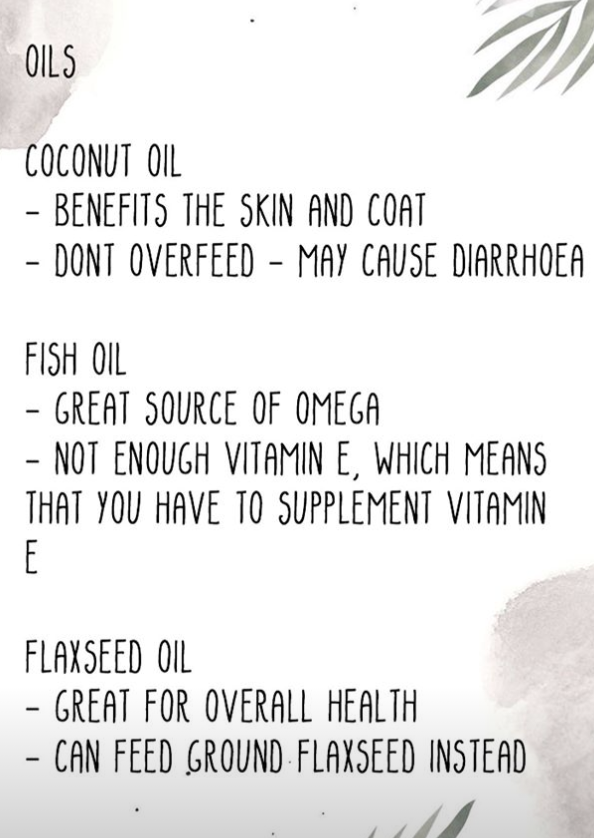PSA – I am self-taught and this guide is not meant to be an exhaustive list or replace what your vet/nutritionist advised you! I just want to share some nuggets of information I picked up along the way 🙂
Myth #1: Dogs can eat exactly what humans eat!
Dear hoomums and hoodads out there, do you have the misconception that dogs eat exactly what we eat? For instance, rice, meat and vegetables are sufficient to constitute a nutritious and balanced diet?
Like many of you, when I first adopted Max, that was what I thought. However, after a horrible itchy episode that Max suffered, I realised that what I was feeding was highly inflammatory and not even balanced!
What is a balanced diet then?
A quick rule of thumb is the 80 – 5 – 15 rule that I follow. There are slight variations out there and it all depends on your dog (and any pre-existing health conditions that he/she may have)
Generally, 80% of the bowl should be filled with meat.
Meat includes pork, chicken, beef, crocodile, lamb etc. It can be minced or in cubed form, whichever your dog prefers. Additionally, try spicing up the meat options by adding in different seafoods such as canned tuna in water (do check for salt content), salmon and green lipped mussels.
*Bones of canned fish are edible
5% refers to offals and kidneys – these are essential for balancing the diet!
15% refers to vegetables and grains.
For vegetables, it is advisable to choose vegetables that are low in sugar such as broccoli, cauliflower, cabbage, zucchini and cucumbers. Try to reduce the number of potatoes (too much carbs!) and carrots (high in sugar). Additionally, vegetables should be cooked and cut into smaller pieces to aid digestion!
For grains, white rice, white bread and pasta should be avoided (it increases the chances of yeast infections and many dogs are allergic to it). Instead, opt for wholesome grains such as quinoa, oats and lentils.
Myth #2: Dogs don’t need supplements
While it is true that not all supplements are necessary for a balanced meal, it is important to add in calcium to your dog’s home cooked food. The amount of calcium to add depends on your dog’s body weight, and there are lots of online resources to help calculate this. Examples of calcium include finely grounded egg-shell powder and bonemeal powder.
Optional but highly recommended supplements include:
- For joints: rosehip powder and golden paste
- For gut health: probiotics, greek yoghurt, kefir and cottage cheese
- Herbs – rosemary, turmeric, oregano and cinnamon
Do check the dosages of these based on your own dog’s weight!
Myth #3: Dogs do not need oils
While oils are optional, they are a great source of omega-3 and helps with fur growth! These are the 3 common oils that are fed:
- Fish oil
- Coconut oil
- Flaxseed oil – alternatively, flaxseeds can be bought and grounded prior to meals
Summary



Conclusion
While home-cooked food is better than commercial brands because you know what is going into their meals, it is important for their diet to be balanced and nutritious as well.
If you are deciding to switch their diet to home-cooked food, do start slow, especially if your dog has a sensitive gut and monitor their stools as well.
I hope that my advice has been helpful! Max says a big thank you to everyone who has read till here.
If you want to follow Max’s journey, his instagram is @thelazygoldiemax <3

* This blog is designed to be a community where pet owners can learn and share. The views expressed in each post are the opinion of the author and not necessarily endorsed by Pawjourr. Always consult your veterinarian for professional advice.
